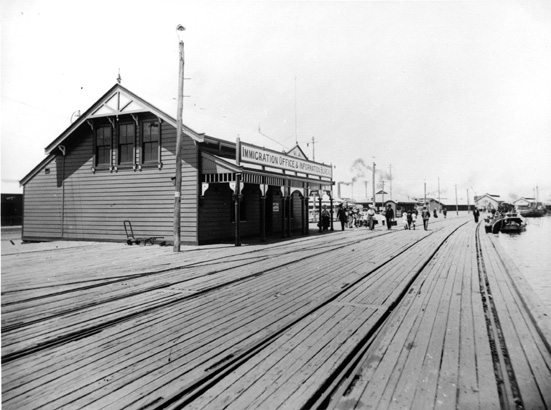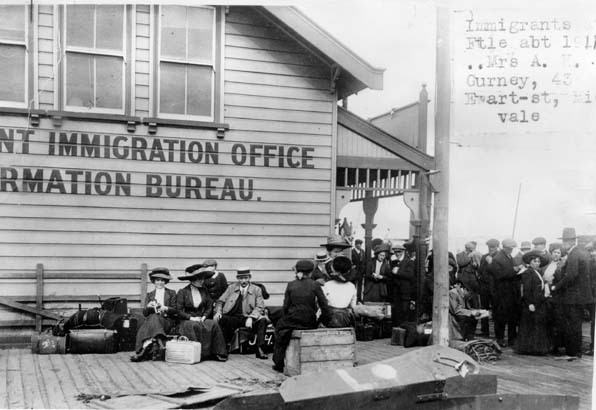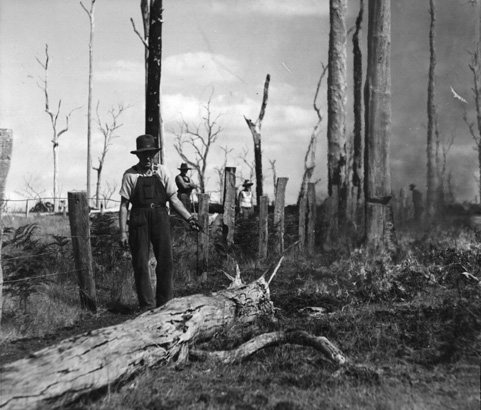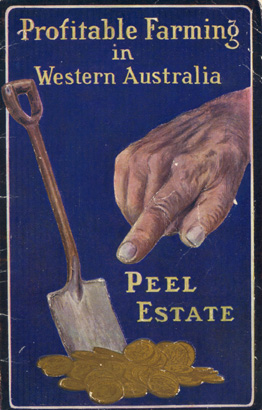|
Introduction
Immigration in the twentieth century has fundamentally shaped the structure and the
nature of Western Australian society. Migration is associated with uprooting the past and confronting an unknown future in a strange land that is a great social, physical,
cultural and linguistic distance from the societies of the migrants' country of origin.
The settlement of Western Australia by Europeans has come at the direct expense of Aboriginal people. The dispossession of indigenous people
began in 1829 and continued into the twentieth century with the expansion of farming and pastoral activities throughout the State. At Federation in 1901 Western Australians overwhelmingly
supported the institution of a White Australia Policy to restrict the entry of non--Europeans. A White Western Australia had some European residents of Italian, Greek or Slav orgins but even fewer non-Europeans.
The introduction of the Group Settlement Scheme in the 1920s was aimed at attracting white Britons to Western Australia to
open up and settle new farm lands. Following the Second World War, Australia pushed to industrialise and expand its economy through increased migration. Not enough suitable British
migrants could be found so, in the spirit of White Australia, European refugees, displaced persons, and general migrants were brought to Australia in the belief that we must populate or
perish. Mass migration brought big changes to Western Australian society in the decades after the Second World War. It helped shape a dynamic and culturally diverse society which,
by the time the racist White Australia Policy had been abandoned by Australian governments, was open to increased levels of migration from a variety of non-European countries.
By the end of the twentieth century a truly multi-cultural Western Australia had begun to take shape with a level of
tolerance and openness to the cultures which make up the Western Australian communities marking the development of a culture which embraces diversity.
|
|









